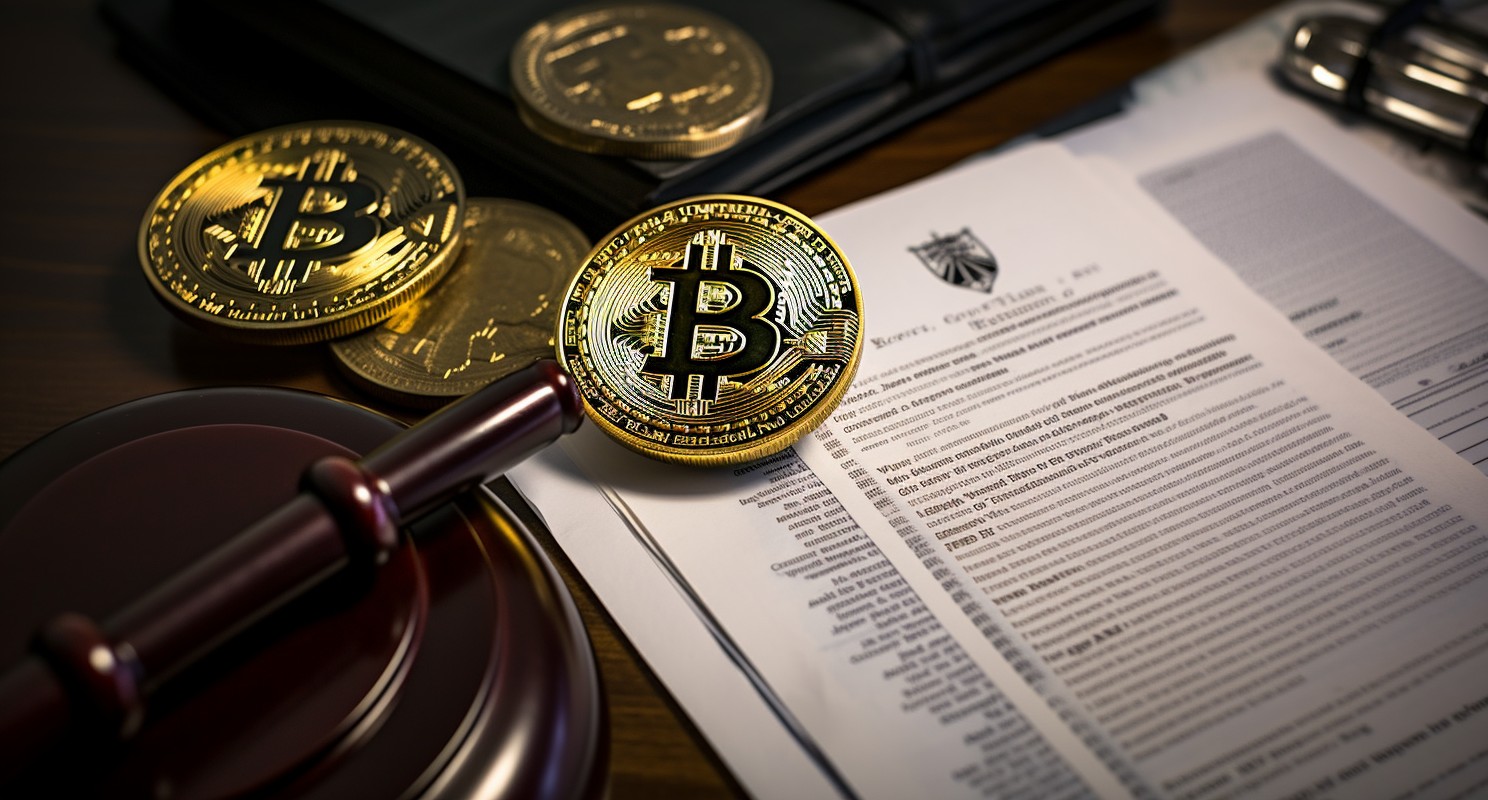Table of Contents
In the realm of cryptocurrency, the legal landscape remains as ever-changing as the market itself. One question, however, continues to surface: Is Bitcoin Mining Legal In Florida? The Sunshine State has seen a surge in crypto popularity, with a 65% increase in blockchain-related jobs over the past year. Yet, the legalities of Bitcoin mining in Florida remain shrouded in complexity.From individual enthusiasts to burgeoning mining enterprises, understanding the regulatory environment is crucial. This article dives deep into the legal intricacies, offering clarity to miners and investors alike.Stay informed and navigate the crypto waters with confidence. Read on to uncover what makes Florida a unique case study in the broader narrative of cryptocurrency.
Understanding the U.S. Regulatory Landscape for Cryptocurrencies
In the ever-evolving world of digital currencies, the U.S. maintains a complex, multi-layered regulatory environment. This landscape is a mosaic of federal and state regulations, where jurisdiction often overlaps, and rules can vary significantly from one state to another.
One notable aspect of U.S. cryptocurrency regulation is the absence of explicit bans on Bitcoin mining at the federal level. Instead, the government focuses on integrating existing financial laws to govern these novel assets, emphasizing anti-money laundering (AML) and know your customer (KYC) protocols. For an in-depth look at the regulations across different states, check out this comprehensive guide on cryptocurrency laws and regulations by state.
Florida's Stance on Bitcoin Mining
When it comes to Bitcoin mining, Florida exhibits a more laissez-faire approach. The state hasn't imposed any specific prohibitions on mining activities, largely due to the decentralized and somewhat elusive nature of cryptocurrencies. This hands-off approach might stem from a recognition of the challenges in legislating a technology that operates on the fringes of the traditional financial system.
| State | Bitcoin Mining Regulations | Taxation of Mining Earnings | Regulatory Oversight |
|---|---|---|---|
| Florida | Laissez-faire approach | Taxable income | Limited oversight |
| State 2 | Regulations in State 2 | Taxation in State 2 | Regulatory Body in State 2 |
| State 3 | Regulations in State 3 | Taxation in State 3 | Regulatory Body in State 3 |
However, it's crucial to understand that a lack of prohibition doesn't equate to a lack of regulation. Miners are still subject to general financial regulations and must ensure their activities don't contravene state laws. For insights into how digital assets are transforming the financial landscape, explore the concept of tokenization.
Legal vs Regulatory Approvals in Cryptocurrency Mining
Navigating the legal waters of cryptocurrency mining requires distinguishing between activities that are outright legal and those that mandate regulatory oversight. While mining per se isn't illegal, the conversion of mined coins into fiat currency, for instance, triggers a set of financial regulations and tax obligations.
| Activity | Tax Treatment |
|---|---|
| Bitcoin mining income | Taxable income |
| Conversion of mined coins into fiat currency | Tax obligations apply |
| Reporting fair market value of mined coins | Must be reported as gross income |
Miners need to tread carefully, especially considering the scrutiny from various regulatory bodies, including the Securities and Exchange Commission (SEC) and the Financial Crimes Enforcement Network (FinCEN), which govern cryptocurrency operations to varying degrees. These agencies ensure that digital currency operations do not skirt financial laws, particularly those related to money transmission services.
Moreover, miners must report earnings from their activities as taxable income, which involves a detailed understanding of tax laws as they apply to virtual currencies. For a more detailed exploration of the legal nuances, miners should refer to this comprehensive review of Bitcoin mining legality in Florida.
Florida's Crypto-friendly Environment
Florida has historically embraced Bitcoin and other cryptocurrencies, positioning itself as a haven for digital currency enthusiasts. The state's approach has been largely permissive, fostering a climate conducive to the growth of these innovative technologies.
Nowhere is this more evident than in Miami, which has emerged as a veritable hub for the crypto community. The city's leadership is actively advocating for blockchain technology, pushing for policies that could solidify Florida's reputation as a crypto-friendly state. This progressive stance is charting a course for the future, one where digital currencies play a pivotal role in economic development. Curious about how this integration looks? Dive into how Bitcoin mining can fuel Florida's future.
Tax Implications and Reporting for Bitcoin Miners in Florida
But it's not all digital gold rushes and coin rain; miners have to contend with the taxman. The IRS is clear: Bitcoin is property, not currency, and the implications for miners are significant. Earnings from mining activities are recognized as income, and the fair market value of mined coins must be reported as gross income.
Large-scale mining operations, particularly, can expect scrutiny and potential regulatory oversight, ensuring compliance with tax obligations and anti-money laundering statutes. For a deeper understanding of the financial side of the blockchain, consider exploring investment opportunities in blockchain stocks. Additionally, miners should be aware of the darker side of the crypto world, including criminal aspects of cryptocurrency mining, as discussed in this insightful article.
The Dynamic Nature of Cryptocurrency Regulations
In the realm of cryptocurrency, change is the only constant. The legal landscape is ever-evolving, with new policies often driven by environmental concerns and the potential for misuse. Cryptocurrencies, for all their benefits, have raised issues ranging from energy consumption to their use in illegal activities.
For miners, this dynamism means one thing: vigilance. Regulations can shift, and staying compliant requires keeping a finger on the pulse of both current laws and emerging legislative trends. This is particularly true in Florida, where the state's warm embrace of crypto doesn't negate the need for responsible mining practices. For anyone considering setting up shop, it's crucial to understand the rules and requirements for establishing a cryptocurrency mining business in Florida.
Is Bitcoin Mining Legal In Florida: A Direct Answer
So, to cut through the suspense, Is Bitcoin Mining Legal In Florida? Yes, it is. But it's not a ‘dig anywhere, mine anything' kind of policy. While the Sunshine State hasn't outlawed Bitcoin mining, miners must navigate a maze of both state and federal regulations. Compliance isn't optional, and the legal status of Bitcoin mining hinges on adherence to these rules. It's like a game of chess with Uncle Sam; every move must be strategic and within the rules. For a broader perspective on crypto legality, check out this comprehensive guide on starting a cryptocurrency brokerage.
Precautions and Best Practices for Bitcoin Miners in Florida
Now, knowing it's legal is just step one. Miners need to play it smart, ensuring they're ticking all the regulatory boxes. This means keeping an ear to the ground for regulatory updates and having a ‘Plan B' for those just-in-case moments. It's not enough to set up your rig and start mining; staying informed and compliant is your pickaxe and shovel in this scenario.
Need some investment tips while navigating the crypto waters? Here's how you can buy Coinbase stock, a potential golden ticket in the crypto realm. And don't overlook the peculiarities of the local landscape – understand why Bitcoin has a Florida problem.
The Future of Bitcoin Mining in Florida
Peering into the crystal ball, the future of Bitcoin mining in Florida looks like a mixed bag of challenges and opportunities. Miners can't afford to rest on their laurels; the sector is dynamic, and adaptability is key. Trends suggest a potential regulatory tightening, but there's also a silver lining with advancements in eco-friendly mining practices and burgeoning local crypto communities.
Innovation will be the lifeblood of Bitcoin mining in Florida, keeping the sector thriving amidst shifting sands. The goal? Staying ahead of the curve, ready to pivot as the industry evolves. For those looking to dive deeper into the mining world, explore how you can become a Bitcoin broker, potentially opening new doors in your crypto journey.
Frequently Asked Questions
Is Bitcoin Mining Legal in Florida?
Yes, Bitcoin mining is legal in Florida. However, individuals and businesses engaged in mining activities must comply with state regulations and tax obligations.
What are the regulations for Bitcoin mining in Florida?
- Compliance with state financial regulations.
- Adherence to tax obligations, including income generated from mining.
- Understanding of anti-money laundering laws.
Do you need a license for Bitcoin mining in Florida?
No, you do not need a specific license for Bitcoin mining in Florida. However, standard business licensing requirements apply if operating as a mining business.
How does Florida's energy cost impact Bitcoin mining?
Florida's energy costs, averaging $0.1134 per kWh, influence profitability. Miners seek areas with lower electricity rates to reduce operational costs.
Can local authorities in Florida affect Bitcoin mining?
Yes, local authorities can impose restrictions, especially concerning noise, energy use, and other community disturbances caused by mining activities.
Are there active mining farms in Florida?
Yes, several mining farms operate within Florida, benefiting from the state's regulatory clarity and increasing crypto-friendly initiatives.
Conclusion
Navigating the complexities of cryptocurrency laws can be daunting. But, when it comes to answering the pressing question, “Is Bitcoin Mining Legal In Florida,” the waters are surprisingly clear. Yes, it's legal, but it doesn't come without its share of responsibilities. From understanding state-specific regulations to keeping abreast of the dynamic legal landscape, miners need to stay informed.As the crypto industry continues to evolve, so too do the opportunities and challenges it presents. Whether you're a seasoned miner or new to the scene, keeping informed is your greatest asset. Dive deeper into the world of cryptocurrency, explore more articles, and stay ahead of the curve in this digital gold rush.
Thank you for reading!





